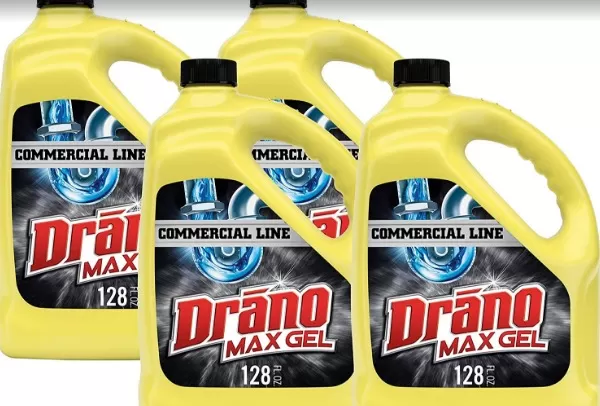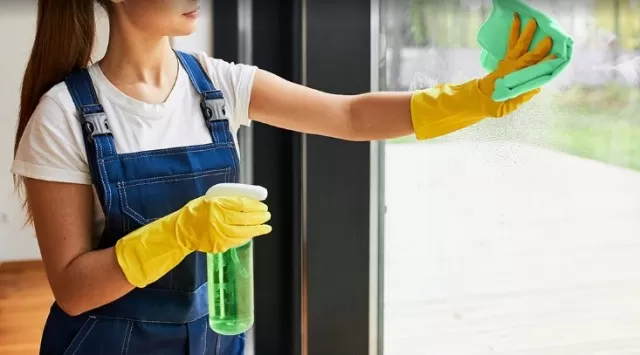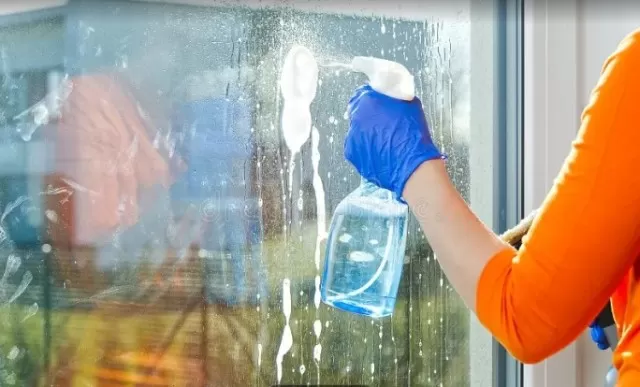15 Cleaners That Can Be Harmful (Part 2). While many cleaning products excel at removing stains, dirt, and germs, it’s crucial to be aware of their potential damaging effects when overused. By striking a balance between cleanliness and safety, you can keep your home pristine while safeguarding your health and the well-being of your living space.
Liquid Drain Cleaners: A Cautionary Tale

Liquid drain cleaners are often relied upon to dissolve stubborn clogs in plumbing systems.
While they can be effective in their intended purpose, it’s crucial to understand the potential risks associated with their use.
These products contain caustic chemicals that can indeed break down tough blockages, but their corrosive nature means they can also harm various materials.
Liquid drain cleaners have the power to dissolve not only clogs but also wood, fabric, paint, and even corrode the metal in older plumbing. This corrosion can lead to holes in your pipes, which can escalate into more significant and costlier issues than the original clog.
Moreover, liquid drain cleaners can be hazardous to your health.
Contact with skin can result in burns, and if ingested, they can be fatal. Therefore, it’s advisable to use liquid drain cleaners only as a last resort and with extreme caution.
Alternatively, consider exploring safer homemade drain cleaner alternatives to address your plumbing issues while minimizing the associated risks. Your safety and the longevity of your plumbing system should always be a top priority.
Oven Cleaner: Handle with Care
Oven cleaners are a common household tool for removing stubborn grease and grime from ovens.
However, it’s important to be aware of their potentially harmful ingredients and use them cautiously.
Many oven cleaners contain lye, a highly toxic substance that can cause severe skin and eye burns upon contact.
Additionally, these products often contain ethers, which have the potential to irritate the mucous membranes in the nose and throat, leading to discomfort.
While oven cleaners can be effective in tackling the baked-on residues inside your oven, they should be used with extreme care.
It’s essential to follow safety guidelines provided on the product’s label and take precautions, such as wearing protective gear like gloves and eye protection, when handling them.
Furthermore, like all cleaning products, oven cleaners should be stored out of reach of children and pets when not in use.
Safety and responsible handling are paramount when using any household cleaner to protect both your health and the well-being of those around you.
Carpet and Spot Cleaners: Proceed with Caution

The task of eliminating spots and dirt from your carpet can be a challenging one, and it often leads to the use of potent industrial chemicals.
These chemicals are prevalent not only in professional cleaning services but also in commercial carpet cleaners like Resolve, which has received an F rating from the Environmental Working Group due to concerning ingredients.
One of the worrisome components found in many carpet and upholstery cleaners is naphthalene, a known carcinogen.
Naphthalene is commonly used in these products to combat stains and odors, but its presence raises significant health concerns. Even the fumes emitted during cleaning can be harmful, potentially leading to kidney and liver damage, making it particularly hazardous in households with children and pets.
Given these risks, it’s crucial to exercise caution when using carpet and spot cleaners.
If possible, explore alternative, eco-friendly cleaning options that pose fewer health and environmental hazards. Prioritizing the well-being of your loved ones and the environment should guide your choices when it comes to maintaining the cleanliness of your carpets.
Cleanser Pods: A Safety Concern in Homes with Young Children
Detergent pods, whether designed for dishwashers or washing machines, can pose a significant safety risk when young children are present in the home.
These pods often come in vibrant and colorful packaging that resembles candy, making them enticing to children and increasing the risk of accidental ingestion.
The resemblance to candy can be misleading for young children who may mistake detergent pods for a tasty treat.
Ingesting these pods can have serious health consequences, including poisoning and digestive tract injuries. It’s essential for parents and caregivers to take precautions to keep these pods out of reach of children and store them securely.
To ensure a safe environment for your family, store detergent pods in a childproof container or cabinet, and educate children about the potential dangers associated with them.
Vigilance and responsible storage can help prevent accidents and protect the well-being of young children in your home.
Glass Cleaner: Effective, but Not for All Glassy Surfaces

Glass cleaner is a highly effective solution for cleaning glass surfaces, leaving them sparkling and clear.
However, it’s important to note that glass cleaner is specifically formulated for traditional glass and should not be used on other glassy surfaces.
Using glass cleaner on electronic screens such as TV and computer screens, phones, or tablets is discouraged.
This is because many glass cleaners contain ammonia, which, after multiple applications, can have adverse effects on these screens. It may lead to yellowing, fogging, or making the screens brittle and susceptible to cracking over time.
In addition to electronic screens, glass cleaner is not suitable for cleaning eyeglasses or sunglasses.
Using it on these surfaces can result in scratches and cracks on the lenses. Instead, opt for specialized lens Cleaning Solutions or gentle, lens-friendly wipes designed for eyewear.
In summary, while glass cleaner is excellent for its intended purpose, it’s essential to exercise caution and avoid using it on surfaces where it may cause damage or deterioration.
Always check the manufacturer’s recommendations for the appropriate cleaning solutions for specific items to ensure their longevity and performance.
*The information is for reference only.